503.webp)
The Application of HDPE Geomembranes in African Countries-N
HDPE geomembranes have become indispensable in Africa’s infrastructure and environmental protection, with broad adoption across South Africa, Nigeria, Kenya, and other nations. Leveraging outstanding impermeability, UV resistance, and durability, they adapt seamlessly to the cont...
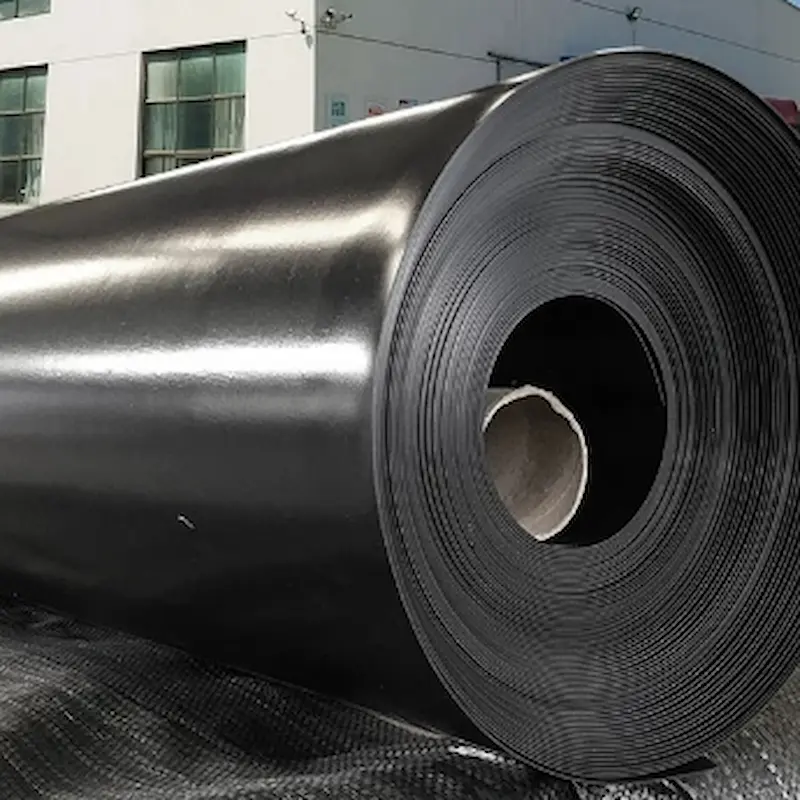
HDPE Geomembranes for tailings ponds in Guatemala-N
The mining industry in Guatemala is developing rapidly. As an important link in the mining production chain, tailings pond's safety management and environmental protection are of great importance. As a kind of high performance geosynthetic material, HDPE geomembranes plays an irr...
876.webp)
Geosynthetic Clay Liners (GCL) vs Geomembranes: A Comprehensive Comparison
Geosynthetic clay liners (GCLs) and geomembranes are both widely used in environmental and geotechnical engineering for containment applications. While they serve similar purposes—preventing fluid migration—they differ significantly in composition, performance, installation, and ...
446.webp)
How to use HDPE geomembrane correctly:Step by step guide-N
HDPE geomembrane is widely used in landfill, artificial lake, water conservancy and other fields because of its excellent impermeability. How to use HDPE geomembrane correctly is crucial to ensure project quality and service life. The following is a detailed introduction to the u...
491.webp)
The most widely used geomembrane in Jamaica T
Haoyang Geomembrane is the most widely used geomembrane in Jamaica. This geomembrane has excellent durability and is carefully designed to withstand Jamaica's harsh tropical conditions. It has excellent UV and chemical resistance and excellent waterproofing capabilities, making i...
612.webp)
HDPE Geomembranes Applications in Ecuador -L
This article focuses on the applications of HDPE geomembranes in Ecuador. It details how these membranes, renowned for their impermeability and durability, are utilized across diverse sectors. Considering Ecuador's unique geographical makeup, from the coastal areas to the Amazon ...
455.webp)
1mm HDPE Geomembrane Price in Asia -L
Geomembranes, particularly High-Density Polyethylene (HDPE) geomembranes, have gained significant popularity in Asia due to their durability, flexibility, and chemical resistance. Among various thicknesses, the 1mm HDPE geomembrane stands out for its balance of cost-effectiveness...
606.webp)
HDPE Geomembrane in Malaysia T
HDPE geomembranes are widely used in Malaysia for diverse applications such as landfill liners, water reservoirs, aquaculture, mining, infrastructure, and the oil and gas sector. Their impermeability, durability, and cost-effectiveness make them essential for environmental protec...
834.webp)
1mm 1.5mm HDPE Geomembrane Pond Liner For Philippines -L
This article focuses on 1mm and 1.5mm HDPE Geomembrane Pond Liner For Philippine. It first explains what HDPE geomembranes are, including their composition, important features like strength, water - tightness and chemical resistance, and manufacturing process. Then it details the...
191.webp)
1mm HDPE Geomembrane Pond Liner For Indonesia Market -L
In the realm of geomembrane technology, High-Density Polyethylene (HDPE) liners have emerged as a cornerstone for various applications, particularly in the construction of ponds and reservoirs. Tailored specifically for the Indonesia market, the 1mm HDPE geomembrane pond liner st...
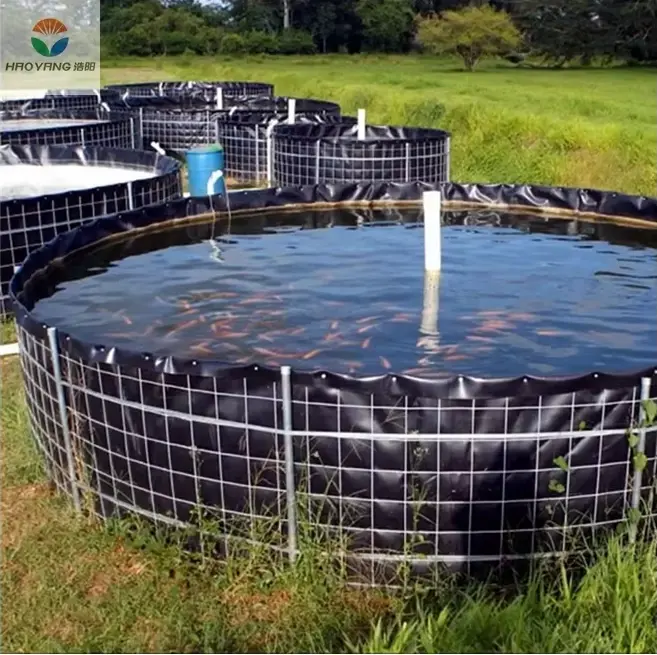
HDPE geomembrane application in fish farms-N
HDPE geomembranes are widely used in fish farms. It has excellent anti-seepage performance, can prevent the leakage of pool water, maintain the stability of water quality and avoid pollution. Smooth surface is easy to catch and clean, durable and resistant to puncture. It creates...
742.webp)
HDPE Geomembranes for Tailings Pond -L
In the mining industry, tailings ponds play a crucial role in storing the waste materials generated during the extraction process. However, ensuring the environmental safety and integrity of these ponds is of utmost importance. High-Density Polyethylene (HDPE) geomembranes have e...
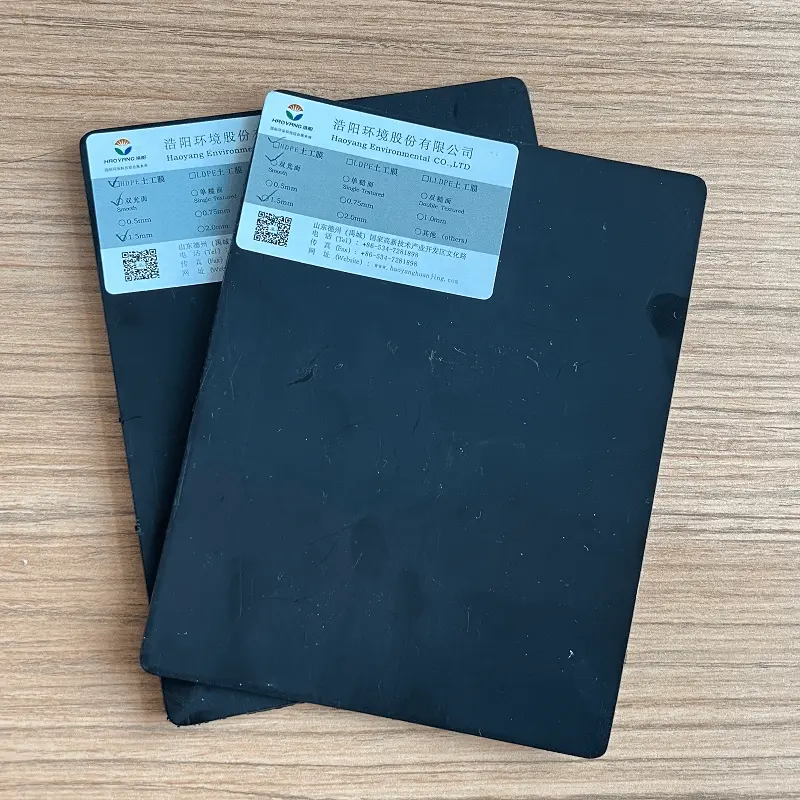
How to Use Geomembranes to Improve Project Durability Cathy
In modern civil and environmental engineering, geomembranes are a vital geosynthetic material widely used to enhance project durability and reliability. This article delves into the basic characteristics, application scenarios, selection and installation methods, and performance ...
432.webp)
HDPE Geomembranes for Dam Liners -L
HDPE Geomembrane, or High-Density Polyethylene Geomembrane, is a type of geomaterial widely used in dam liners due to its exceptional physical, mechanical, and chemical properties. This article delves into the specifics of HDPE geomembrane for dam liners, including its specificat...
Geotextiles vs. Geomembranes vs. Geocomposite Drainage Nets:Understanding Differences
Geotextiles, Geomembranes, and Geocomposite Drainage Nets are key geosynthetics in construction. Geotextiles allow water flow (perm. 0.1-2.0 s⁻¹), geomembranes block it (impermeable), and geocomposites combine drainage and filtration (flow rate 200 L/min/m²).
698.webp)
HDPE Geomembrane for Agriculture -L
HDPE geomembrane is an important product of geosynthetic materials. It has excellent impermeability, strong durability, environmental protection and pollution-free, and is widely used in the agricultural field. It is often used as greenhouse cover, mulch, agricultural irrigatio...
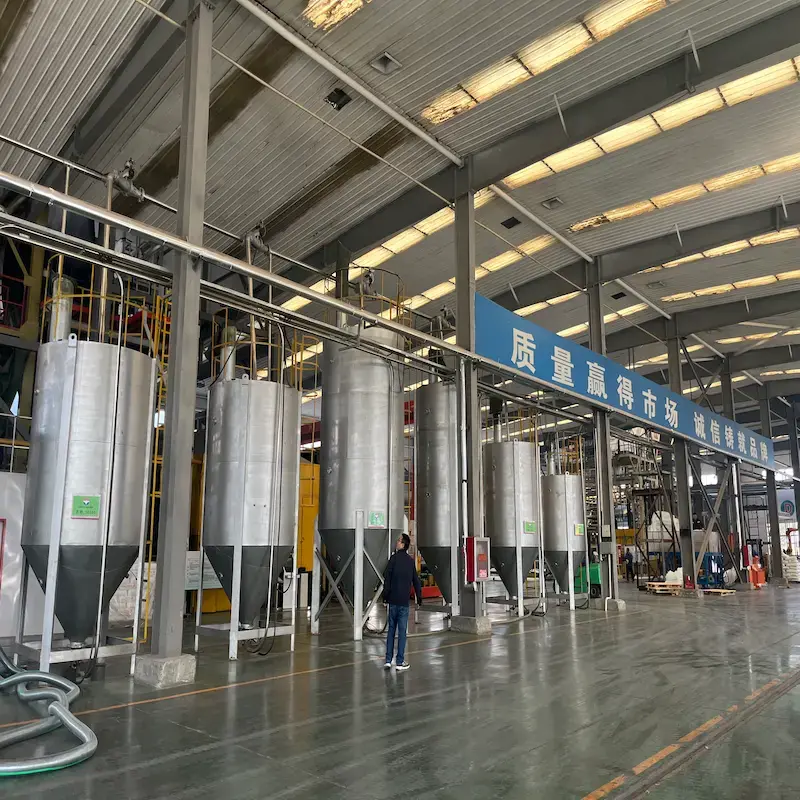
Geomembranes: The Ultimate Guide to Types, Processes and Applications
Geomembranes are an essential component in modern construction and environmental management, particularly in industries like landfill engineering, aquaculture, and water containment. They are synthetic materials made from various polymers, primarily designed to provide a barrier ...
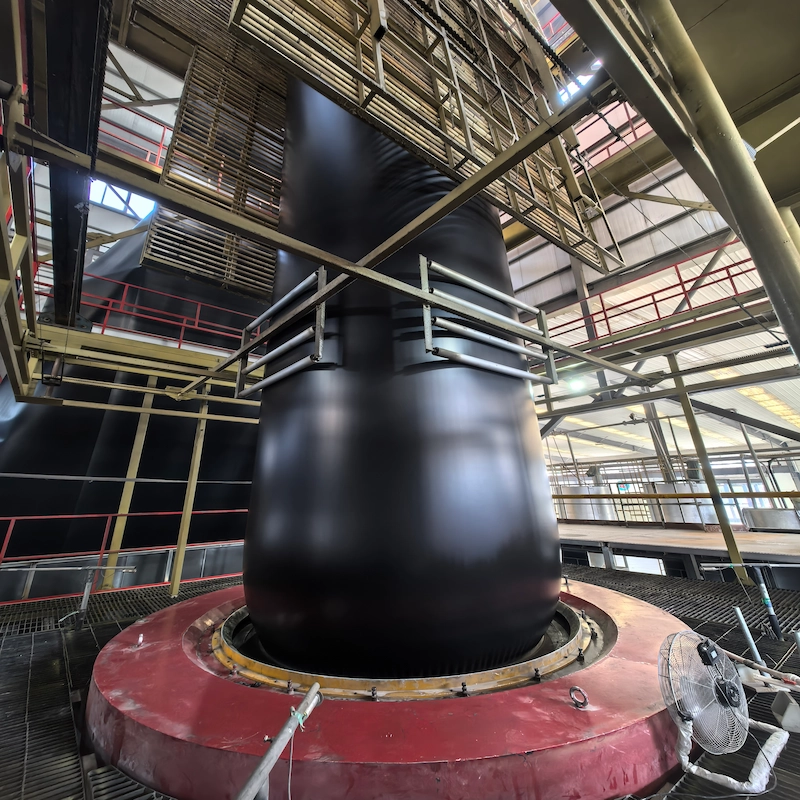
Waterproof Black HDPE Geomembrane Liner for Fish Ponds -L
HDPE geomembrane liner can play the role of waterproofing, anti-seepage and isolation for fish ponds. It also has good water storage performance. Black HDPE geomembrane can resist ultraviolet rays and increase its durability, playing an important role in fish pond applications. T...